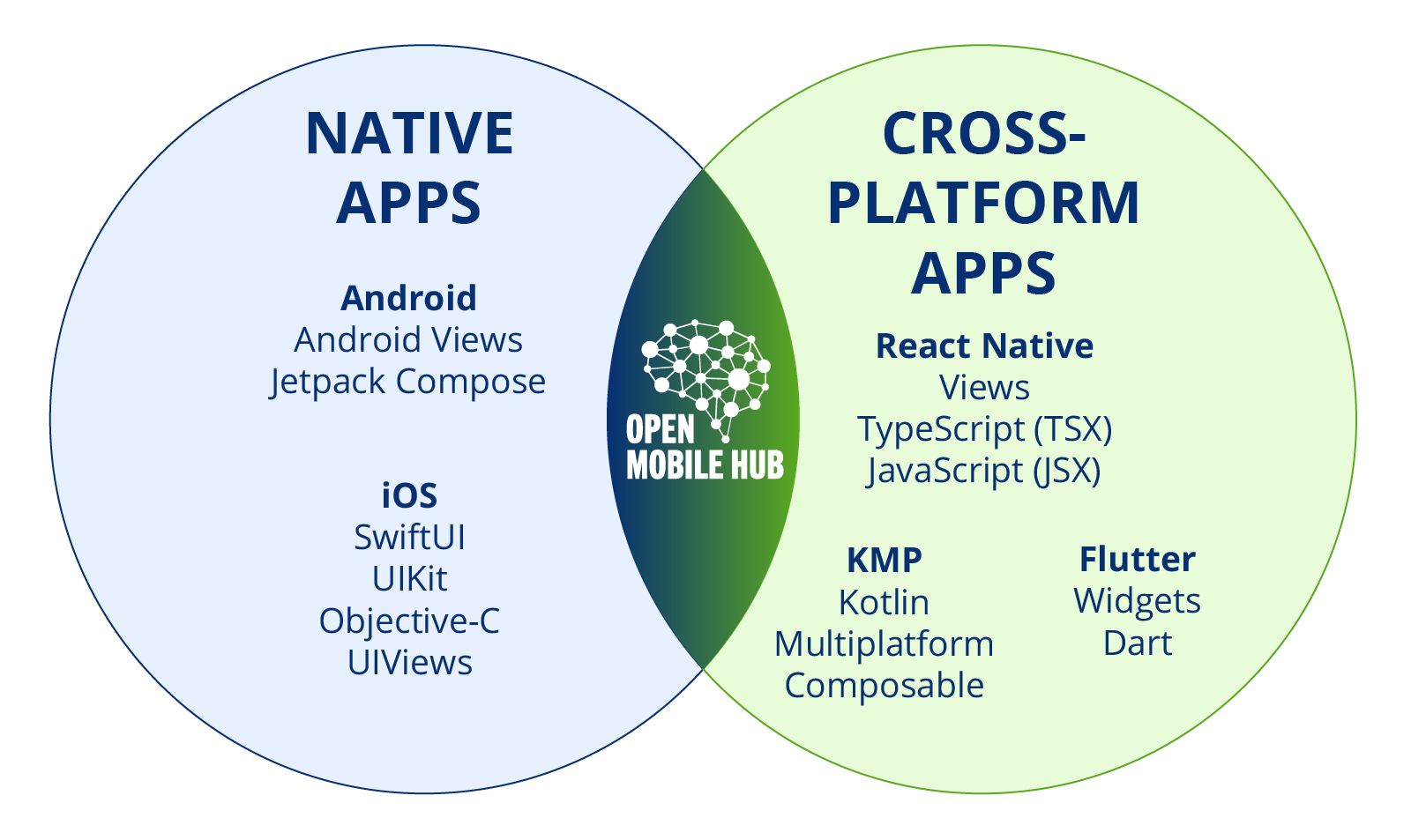Android and React Native
On devices equipped with GMS, OMH seamlessly integrates with existing services. Conversely, on non-GMS devices, OMH redirects calls to alternative services handling functions like authentication, cloud backup, location, or payments. This approach ensures that popular apps can operate smoothly on non-GMS devices, provided suitable alternative services are available.
By abstracting service integrations, OMH allows developers to switch API providers without modifying their applications. This flexibility is achieved through a simple configuration tweak, enabling the selection of providers based on the device type. As a result, service providers can extend their offerings across a broader range of devices, and developers can maintain a single codebase that adapts seamlessly to different environments.
The libraries provide a simplified interface to integrate essential mobile services. The goal is to save developers time and effort while enabling a single set of APIs to support any Android device.
